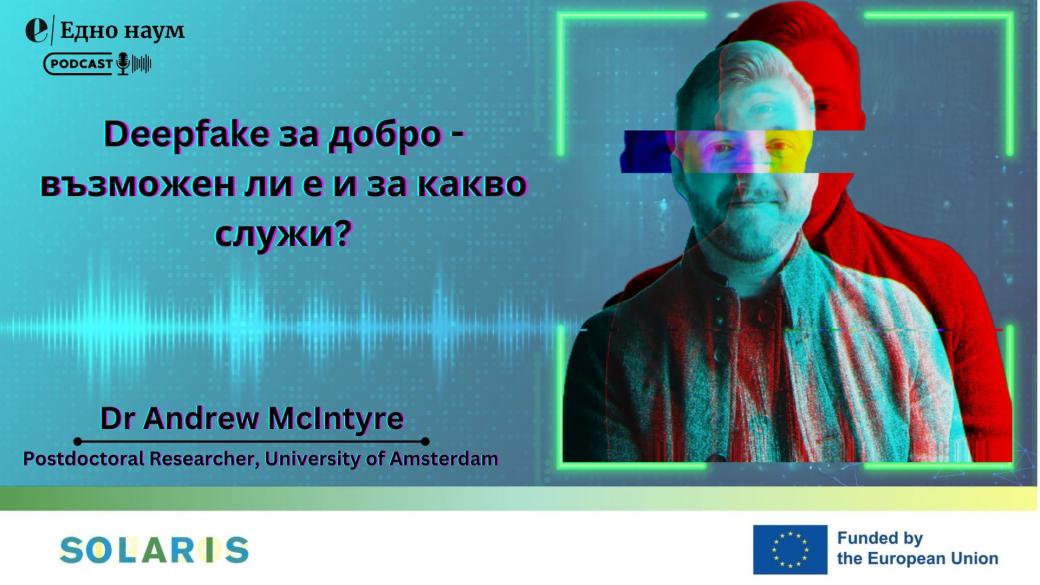Podcast | Deepfakes aren't necessarily a bad thing
The University of Amsterdam researcher is working on the European project SOLARIS, which explores the generative artificial intelligence risks and opportunities to democracy
Dr. Andrew McIntyre:

1 Video
© ECONOMIC.BG / Economic.bg
Listen to a special episode of our ‘Bear in Mind’ podcast, dedicated to generative artificial intelligence and deepfakes. The podcast guest is Andrew McIntyre, a postdoctoral fellow at the Institute for Logic, Language and Computation at the University of Amsterdam.
You can listen to the podcast (in English with Bulgarian subtitles) on YouTube.
Dr McIntyre discusses the latest tech advancements in producing the so-called ‘deepfakes’ – artificially created content that gets extremely close to reality and is difficult to distinguish from an actual recording. Distributed in the form of sound, image and video, this content can be used by malicious actors, to cause harm to the democratic process by undermining viewers’ trust in leaders and institutions. Dr McIntyre discusses current examples of the use of deepfakes in the media, elections and war.
Andrew also talks about the research he has done in the field of generative artificial intelligence as part of the European project SOLARIS. The project analyzes the political risks associated with these technologies and proposes regulatory innovations and opportunities for strengthening democracy through citizen science.
If you want to understand how easy it is to create a deepfake but also to get fooled by one, what the prospects for the development of these technologies are, and whether AI will soon replace humans, then listen to the audio. Also, follow the SOLARIS project to stay on point about upcoming events and news from the field of artificial intelligence.
Co-Funded by the European Union. Views and opinions expressed are however those of the author(s) only and do not necessarily reflect those of the European Union or the Managing Authority. Neither the European Union nor the Managing Authority can be held responsible for them.
Translated by Tzvetozar Vincent Iolov
